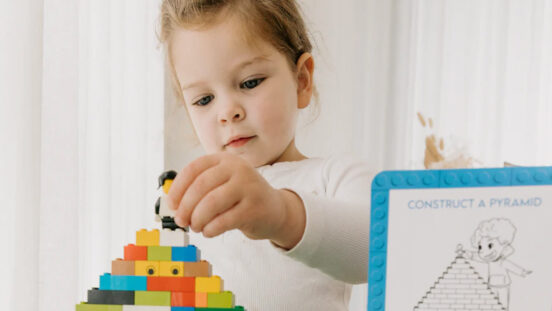Five things to remember going back to school

Before you worry about a healthy lunchbox, perhaps these are some other things to consider as school heads back.
As we head into the final term of the year, it’s easy for everyone to be tired and just looking forward to the impending summer holidays with no school lunches to make, or school projects to chase up.
We take a look at some other things you could consider heading into the final term of 2015, and conversations to have throughout the entire school year.
Talk to your kids about bullying
With approximately one in four in Australian school children experiencing some form of bullying every few weeks or more regularly, it’s important that your child feels they can speak to you openly about what is going on with them at school.
"It is helpful for kids to be aware but not alarmed about bullying", says clinical psychologist, Doctor Sasha Lynn, of Left Field Psychology.
"Just a brief chat on what bullying actually is – repeated, negative interactions by one person against another, not one-off incidents – what it might look and sound like, and how to recognise in themselves when they're not feeling good about a peer relationship."
As a parent it’s important you endeavour to recognise the symptoms of bullying such as not wanting to attend school or activities, anxiety, depression and panic attacks, and work together with your child and school to create an action plan to overcome the situation.
Being available to chat to your child about concerns and dreams
Ensure your child knows that you are never too busy to take the time to listen to their concerns or dreams regarding their life.
If they approach you at a time that is not convenient, let them know it is important to you and set a later time where you can talk with no distractions.
While some children are open to discussing things, not all children will feel comfortable with this.
"If they're not so verbal, creating a hopes and dreams book for the year, where they can draw, write, or even create collages of what they would like from their schooling year can be beneficial. It also helps you both keep track of things as the year goes on," suggests Dr Lynn.

Get involved with school where possible
"School isn't just about your child, it's about your entire family," tells Dr Lynn.
"A school community can be a wonderful support for your child and yourself, and getting involved helps to keep the community spirit alive."
This doesn't mean you need to volunteer for canteen every day, or feel guilty if you need to work and can't attend every event, but try to have a sense of involvement whenever you can.
It’s important that your child feels that you are a part of their school community and you are invested in them and interested in what they do outside the home.
This will also help to create a sense of community in your lives.
Ensure your child feels confident about school work
School work can be daunting for children, and it can also be boring.
Assessing where your child is at may be tricky but a little digging will help you to understand if your child feels that they are coping with the work load and keeping up with the class.
"Providing encouragement to children for giving things a go, trying something new, and focusing on the effort rather than achievement can all help build confidence and instil a sense of persistence to tasks," tells Dr Lynn.
Also if any extra attention is needed in a certain area you can address it before it becomes an issue.
** Encourage your child’s self-esteem**
Whether they bend it like Beckham, or stink on the field it’s important to encourage your child’s self-esteem.
"In extra-curricular activities, children can sometimes fall victim to comparison. And we know that comparison is the thief of joy. Talk to them about their strengths in all different areas, and again, the focus is on effort, not achievement. Getting a sense of enjoyment out of extracurricular activities should really be the focus," Dr Lynn says.
Ensuring your kids understand that everyone has strengths and weaknesses will help them to stay realistic and feel good about themselves and their talents.
Children who feel good about themselves tend to handle conflict and negative situations more smoothly.




